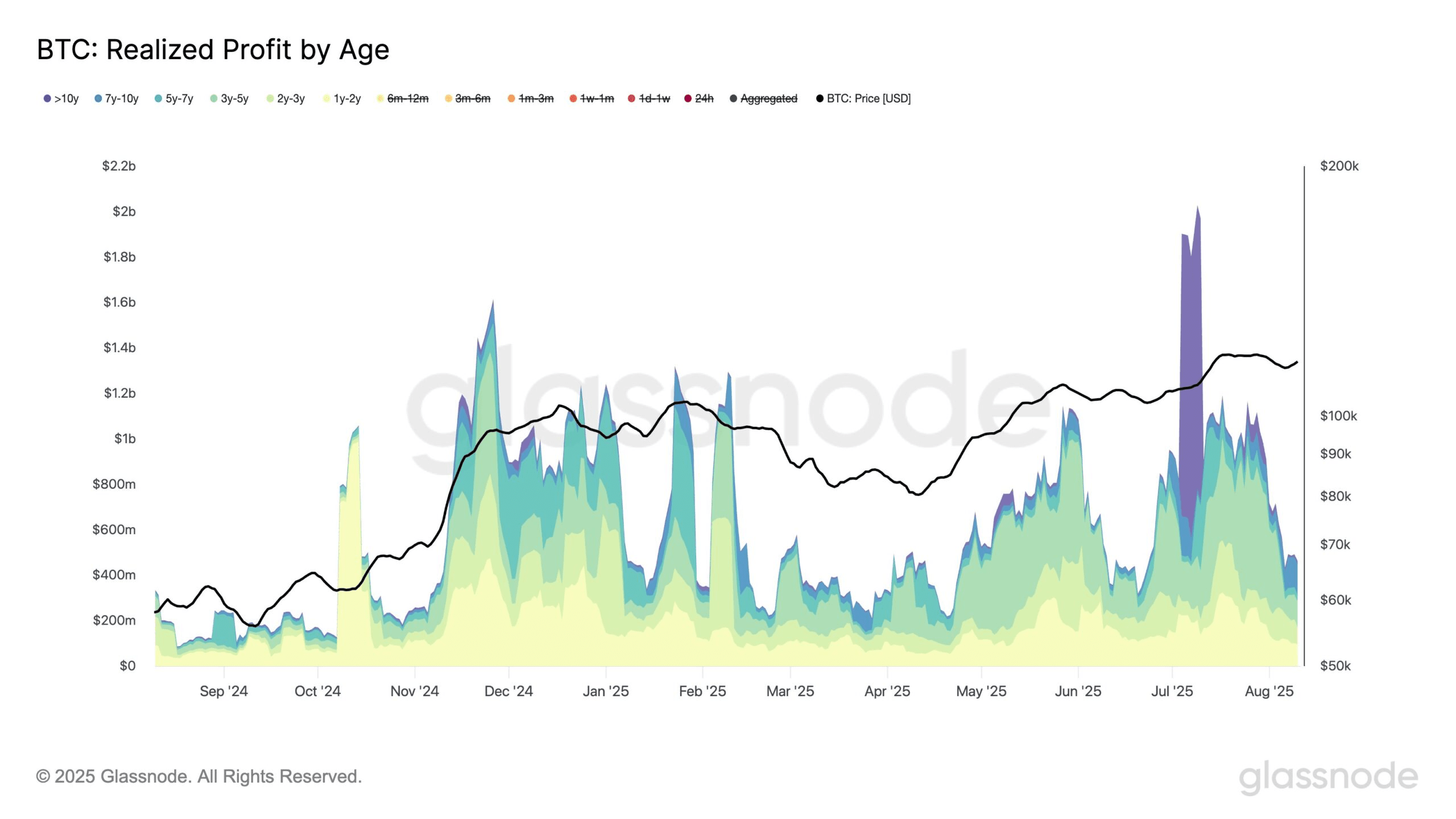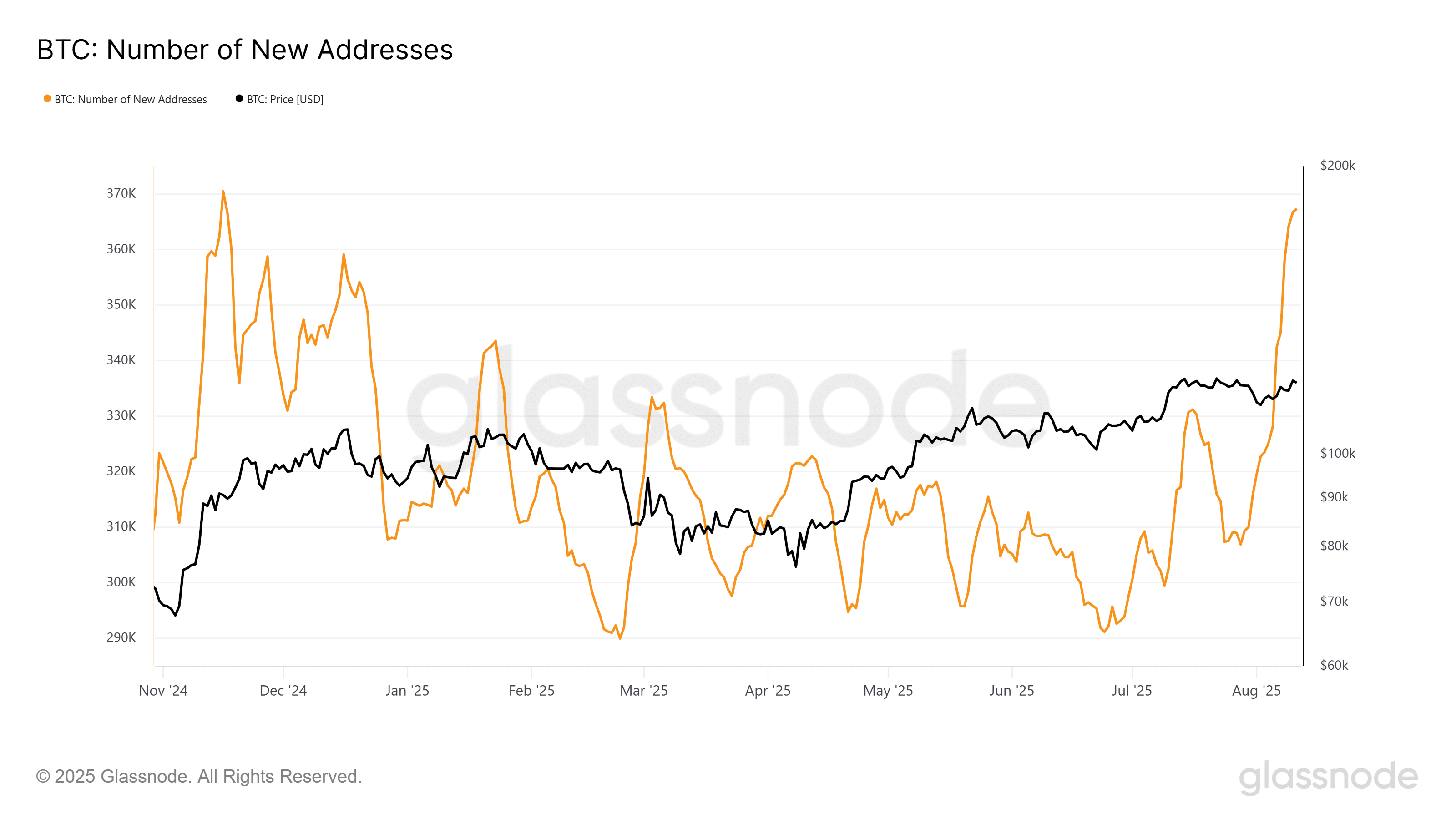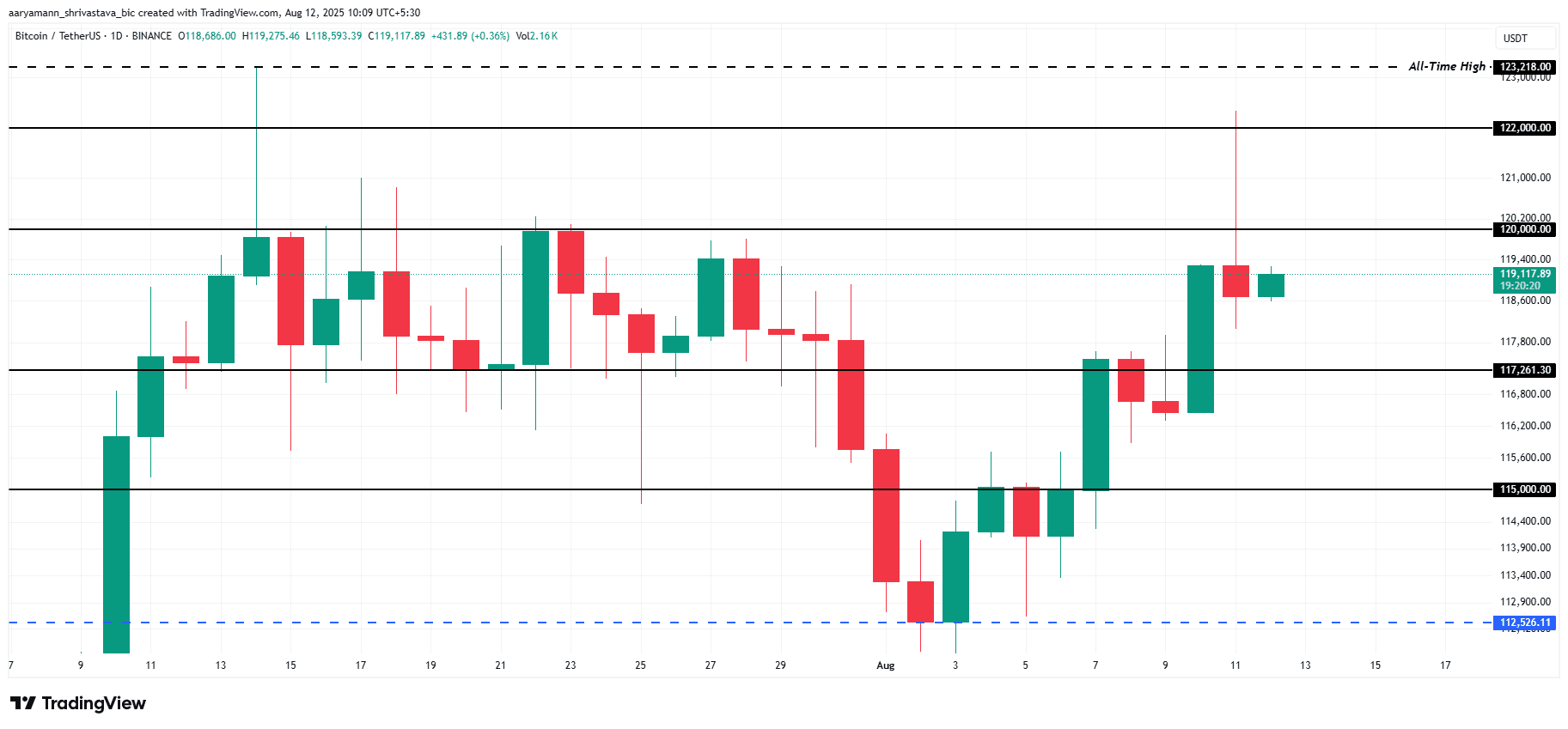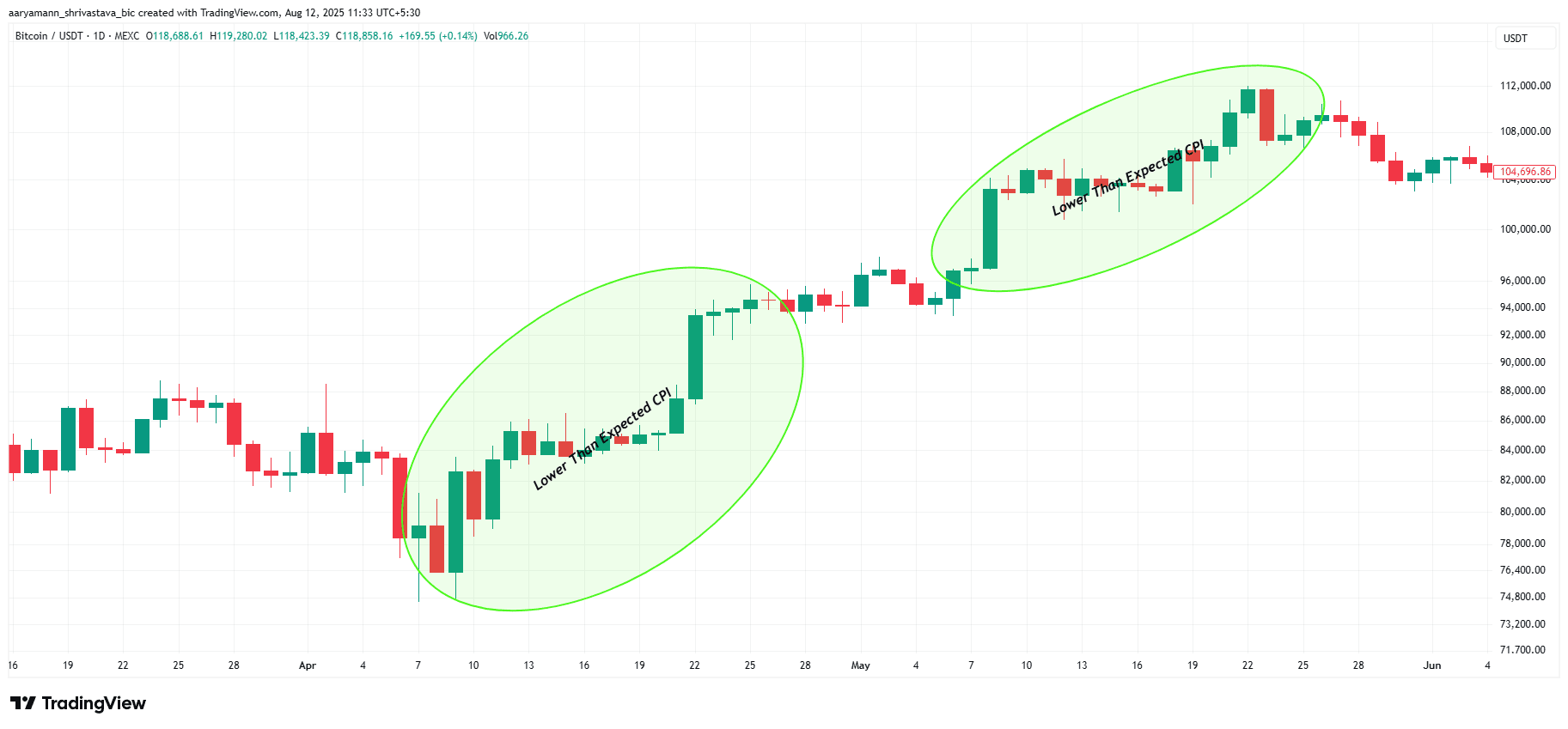Bitcoin experienced significant price volatility this week, rising to $122,000 during peak daily trading before quickly retracting. At the time of writing this report, Bitcoin is trading at $119,117, reflecting a sharp decline from its previous highs.
Investors should closely monitor the market as the US Consumer Price Index (CPI) report approaches, with the potential for it to influence the direction of the cryptocurrency market.
Bitcoin investors are gaining optimism
In August, profit-taking by long-term Bitcoin holders (7-day simple moving average or SMA) slowed significantly. After a stunning July, which saw one of the largest profit-taking periods in Bitcoin's history, the ongoing trend of daily profits exceeding $1 billion declined.
The decline in selling activity among long-term holders contributes to the positive outlook for Bitcoin. As the market stabilizes, investors are showing growing confidence in the long-term potential of the digital currency.

Bitcoin is also currently benefiting from increased interest, with new addresses up by 15% over the past ten days. The number of active addresses has risen to 367,349, marking a nine-month high.
This surge indicates that Bitcoin is gaining momentum among investors and new participants, boosting the overall market sentiment. Bitcoin's price momentum could be significantly affected by the upcoming US CPI report. Ideally, a rising CPI leads to an increase in interest rates, making BTC and other digital assets a profitable investment as they act as a hedge against inflation. However, the situation may have changed this time.

The impact of the Consumer Price Index on BTC price
Bitcoin is currently trading at $119,117 after rising above $122,000 in the past 48 hours, marking a monthly high. However, Bitcoin faced a sharp decline thereafter, reaching its current price.
Bitcoin is currently facing resistance just below the $120,000 level. This has acted as a strong barrier in recent price movements, preventing the cryptocurrency from moving higher.

If the upcoming US Consumer Price Index report shows higher-than-expected inflation of 2.8% year-on-year, Bitcoin's price may remain subdued below this resistance level. This is because the Pearson correlation coefficient between BTC and US stocks is 0.76. In April and May of this year, Bitcoin moved in tandem with financial markets under similar conditions, and a decline in the Consumer Price Index led to an increase in BTC price.

Recent trade wars have complicated the situation, and ideal tariffs have proven to be the exception this year. Cryptocurrency analyst Michael van de Poppe shared a similar outlook while speaking to BeInCrypto.
Michael said, "I don't think we should use historical data in 2025, as it makes no sense. There is also a data point showing that you would need to sell in May and come back in September, while we have technically seen a strong breakout in the markets since May."
Therefore, if the Consumer Price Index report comes in lower than expected at 2.8%, while maintaining the current rate of 2.7% year-on-year from July, Bitcoin may push past the resistance of $120,000. A positive Consumer Price Index report could pave the way for Bitcoin to reach $122,000 and potentially extend its rise towards its all-time high (ATH) at $123,218.